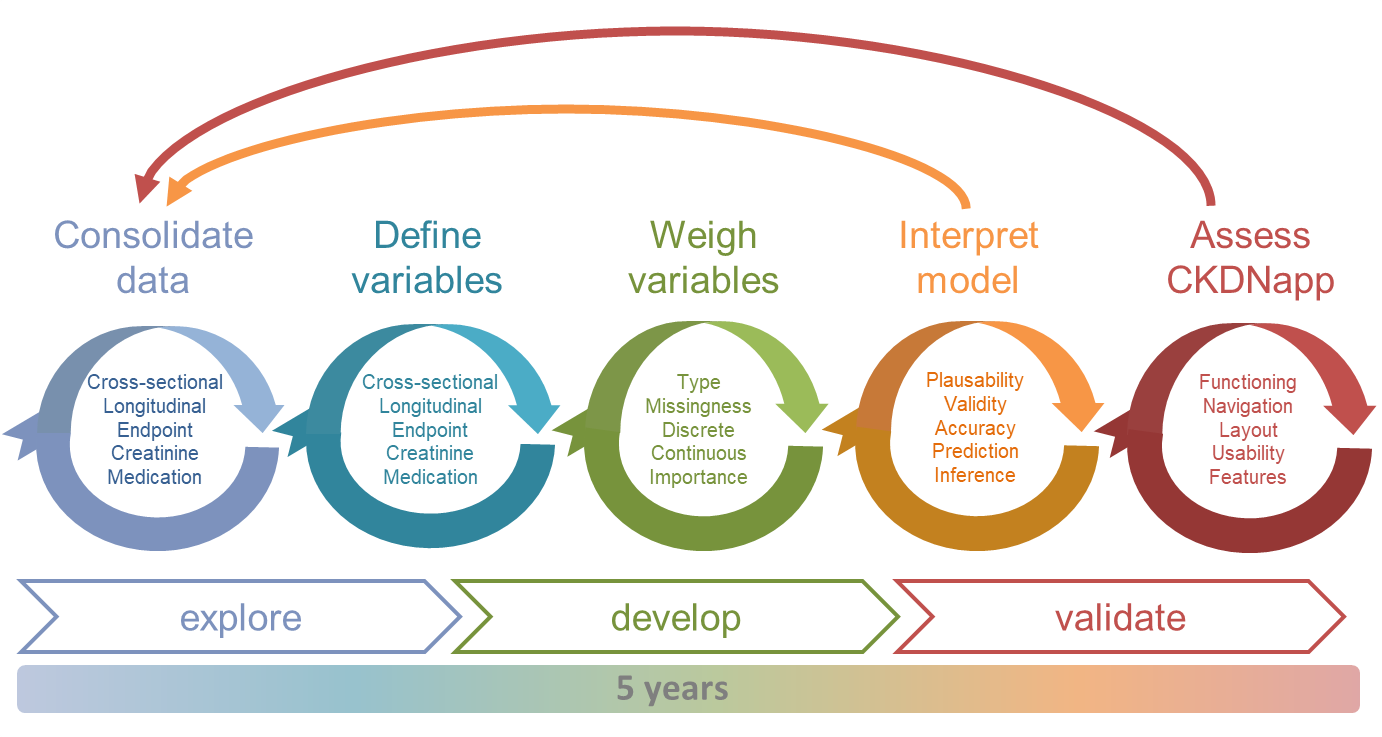
Dr. med. Ulla T. Schultheiß has worked in nephrology and genetics for over a decade now, starting as a doctoral student in Pediatric Nephrology, achieving her doctoral degree working on Nephrocystin-5, a ciliary IQ domain protein, mutated in Senior-Loken syndrome at the University of Michigan, USA (Prof. F. Hildebrandt). From 2007 onward she has worked as a medical resident in the Division of Nephrology, Freiburg (Prof. G. Walz), gaining clinical experience after finishing medical school at the Albert-Ludwigs-University in Freiburg. Since 2010, Ulla has been part of Prof. A. Köttgen’s research group, now Institute of Genetic Epidemiology, in Freiburg. Based on her experience in nephrology, she was deeply involved in establishing the German Chronic Kidney Disease study (GCKD), a prospective CKD patient cohort (N=5217)1,2 since its inception and is leading the GCKD committee for endpoint abstraction.
Ulla’s work has been focused on CKD high-risk subpopulations, patients with gout and hypothyroidism. She is currently working on CKD as a complex disease resulting from a combination of genetic susceptibility variants in many genes and it’s interactions with the environment using high-throughput methods such as metabolomics to gain novel insights into human physiology and pathophysiology. She is part of the Collaborative Research Centers (CRC) 992 and 1140 of the German Research Foundation at the University of Freiburg, Germany.
Since 2020, Ulla is part of the e:Med junior research alliance CKDNapp developing a clinical decision support software to help treating nephrologists in personalizing CKD patient state of the art care using GCKD study data. Here, she is involved in dataset consolidation, generation of clinical input variables, medical interpretation and validation of CKDNapp.
In her subproject, Ulla will use data from the GCKD study for CKDNapp development to assist physicians in personalized treatment of out-patients by
- defining and abstracting variables and datasets for mathematical model building and CKDNapp development,
- medically interpreting all mathematical models, and
- medically validating and refining of CKDNapp.

- Eckardt KU, Barthlein B, Baid-Agrawal S, et al. The German Chronic Kidney Disease (GCKD) study: design and methods. Nephrol Dial Transplant. 2012;27(4):1454-1460.
- Titze S, Schmid M, Kottgen A, et al. Disease burden and risk profile in referred patients with moderate chronic kidney disease: composition of the German Chronic Kidney Disease (GCKD) cohort. Nephrol Dial Transplant. 2015;30(3):441-451.


